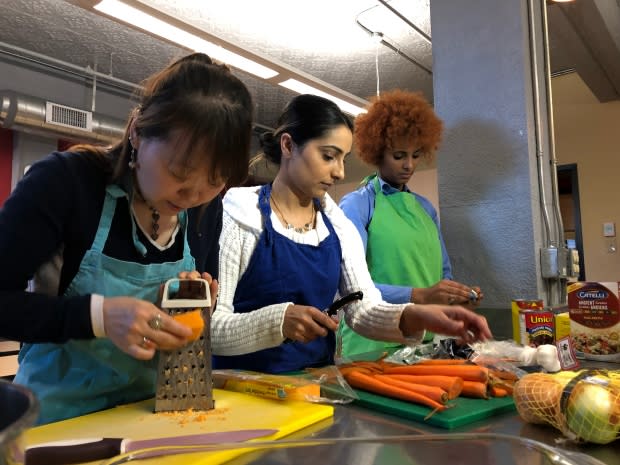New food guide 'allows people to take pride in their own food and their own culture': dietitian
Canada's revamped food guide is putting a focus not just on healthy eating — but also on groups that might have traditionally been left out of the country's nutritional guidelines.
It's an important shift away from portion sizes toward embracing traditional and cultural eating habits, says a registered dietitian in Winnipeg.
"Before, they were still very much focused on portion sizes. Now they're focusing more on culture, and coming back to more traditional foods, and really allowing people to embrace the foods that are important to them," said Lauren Paquette, a registered dietitian at the Women's Health Clinic in Winnipeg.
"It allows people to take pride in their own food and their own culture," she said.
The new guide, unveiled Tuesday, specifically outlines the importance of a traditional Indigenous diet. It suggests that foods like moose, seal, and fish are linked to overall health of Indigenous communities.
"To have pride actually promotes a lot of health and wellness," said Paquette. "And to be able to embrace your own traditional foods is a great sense of joy and respect, and it's empowering."
The food guide also gives advice on how Canadians can include culture and food traditions in their diets, from growing and harvesting using traditional practices to shopping in places that sell the ingredients to make traditional foods.
Newcomer nutrition often overlooked
"Nutrition is one of the things that gets overlooked for newcomers when they're immigrating to a new country," said Briana Henry, who teaches a cooking class at the Immigrant Centre in Winnipeg.
"Some newcomers do find it hard to eat nutritionally, based on Canada's [old] Food Guide, because of what they're used to back home," she said.

Henry said she's excited to see how she can use the new food guide in her class, especially since it has a specific section encouraging Canadians to eat foods that are culturally important to them.
"I think it's validating, where newcomers are coming from, that it's OK to eat the foods that they're used to back home."
Henry says she hopes the focus on including cultures will get Canadians to see the health benefits of foods from around the world.
The new guide also focuses on plant-based proteins, like beans and lentils — something Henry says many immigrants are already used to.
"What I always encourage our clients to do is to eat foods that they make traditionally at home, with maybe some revisions if need be," she said.
"But traditionally, their foods are generally healthy, and we want to promote that."

